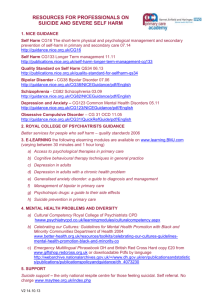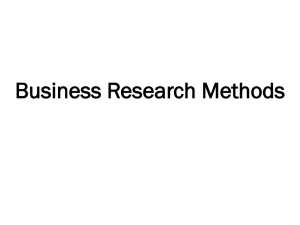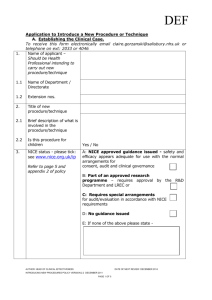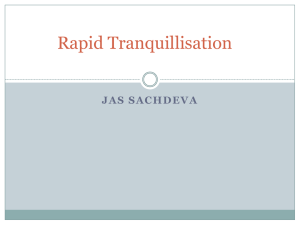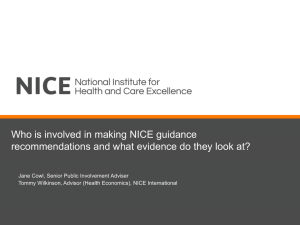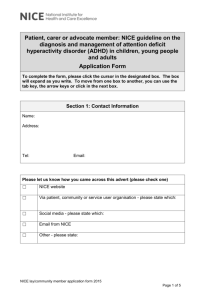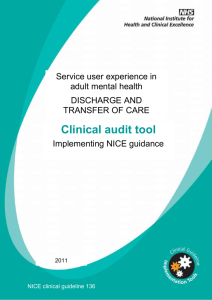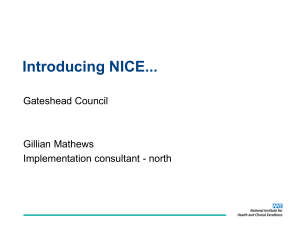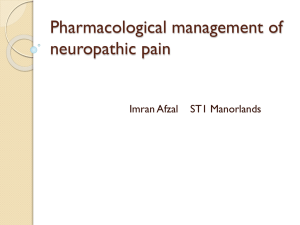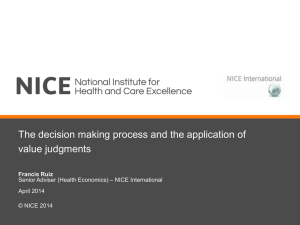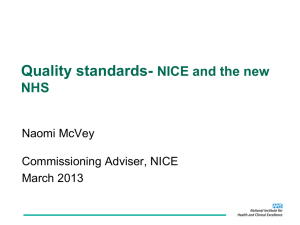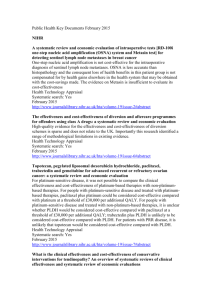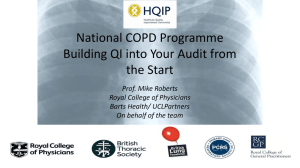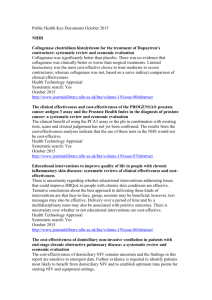How to implement NICE guidance
advertisement
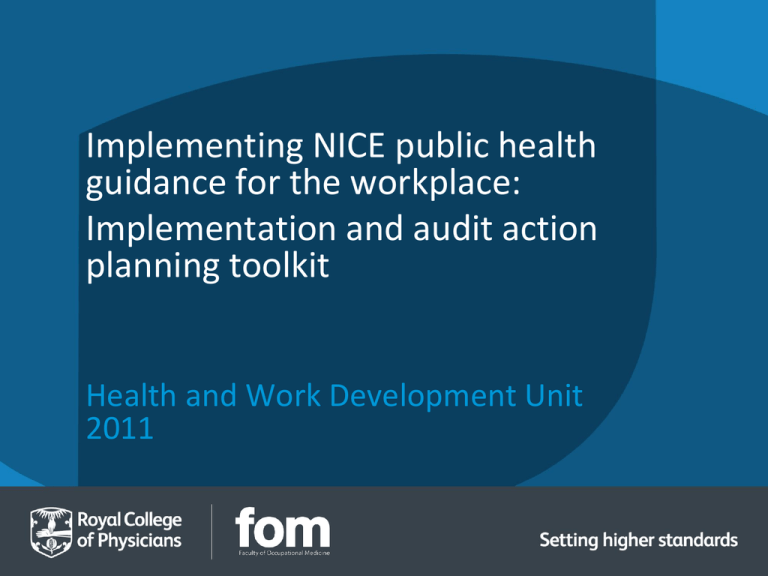
Implementing NICE public health guidance for the workplace: Implementation and audit action planning toolkit Health and Work Development Unit 2011 A. How to implement NICE guidance The aim of this section is to outline the theory behind implementing NICE guidance. There are six key components to a successful implementation process: 1. Clear leadership and board support. 2. An individual or group responsible for implementing guidance. 3. Support from a multidisciplinary team. 4. A systematic approach to resource & financial planning. 5. A systematic approach to implementing guidance. 6. A process to evaluate implementation and feed back. 1. Clear leadership and board support Effective leadership and a culture of continuous improvement are vital for the successful implementation of guidance. Ultimate responsibility for the implementation of NICE guidance is with a chief executive but this is often devolved to other board members. Who is your board representative and is (s)he aware of your audit participation and implementation work? 2. An individual or group responsible for implementing guidance Their responsibilities may include: • identifying and disseminating guidance to the multidisciplinary team and arranging educational events • horizon scanning and forward planning • ensuring effective processes for monitoring and feeding back • producing regular implementation reports including review of activities and progress. Do you have a dedicated lead for this? Is everyone in the team aware? 3. Support from a multidisciplinary team The team should work with the individual indentified before to: • reduce duplication of work • ensure compliance with the recommendations for employers in the NICE guidance • ensure that effective review and monitoring arrangements are in place • ensure that forward planning occurs. 4. A systematic approach to resource & financial planning • Consider all financial and other resource implications of your plans. You may need to develop and submit a business case or build activities into next year’s financial planning. • Plans should detail resources required and associated cost. • Teams could specify the process for negotiating funding between commissioners and providers of any required services. • You may consider all sources of funding – routinely allocated, charitable funds etc. 5. A systematic approach to implementing guidance • This pack will take you through the steps to action plan implementation activities later in the meeting. • Audit is a tool to ensure a systematic and structured approach to continuous improvement. • Please refer to the NICE website for further information, if required. 6. A process to evaluate implementation and feedback Effective models of implementation incorporate evaluation, audit and feed back to the board. To whom do you feed back within your organisation? Who is your board member? REVIEW • Which of these six components do you do well? • On which could you improve? Make a note for later as this will inform your action planning.






